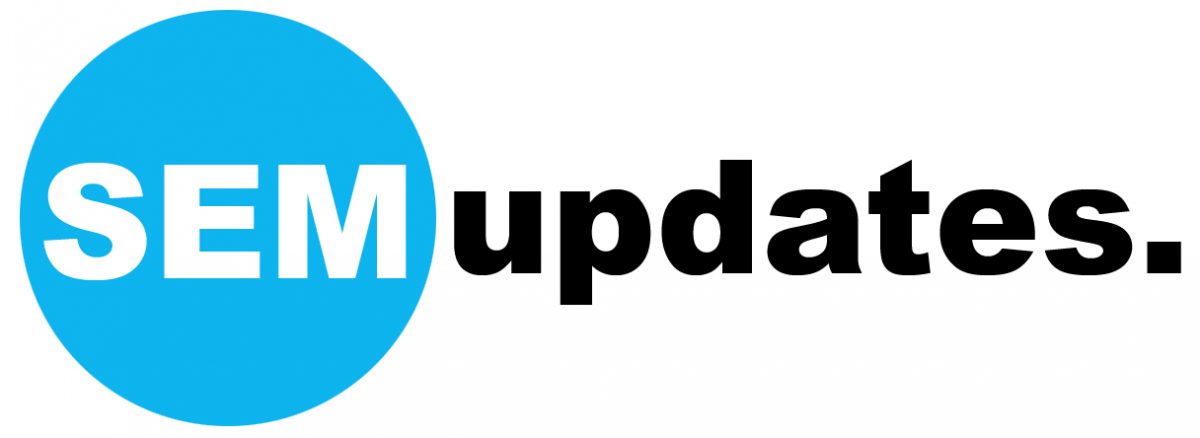Artificial Intelligence (AI) marketing tools can be the key to success, providing a new level of sophistication and power to their marketing efforts.
Small businesses or startups need to stay ahead of the competition, but it’s not easy to do so. They have to be agile, innovative and creative to succeed in their market.
AI marketing tools can analyze consumer behavioural data, predict future marketing trends, automate processes and create personalized experiences for customers. With the right tools, startups can compete with larger, more established companies.
In this article, we explore some latest AI marketing tools that every startup should know to drive shift, improve efficiency, and achieve better ROI.

Here are the five AI marketing tools every startup should know:
#1 New Age Generative AI Chatbots
Generative AI chatbots are AI-powered tools that automate customer service and engagement processes. Startups can integrate chatbots into their website or messaging platforms to assist their customers 24/7 and answer their queries in real-time.
These chatbots can also capture customer data and share customized recommendations based on a customer’s past interactions.
Some popular generative AI chatbot tools for startups includes:
- Mitsuku: Mitsuku is a highly advanced AI chatbot that has won the Loebner Prize, a prestigious competition for conversational AI, four times. It is known for its ability to hold natural and engaging conversations and is available for free on the web and on popular messaging platforms like Kik, Telegram, and Facebook Messenger.
- Replika: Replika is an AI chatbot designed to be a personal companion that learns from your conversations and adapts to your personality. It uses NLP and advanced ML algorithms to understand your preferences and create personalized responses. Replika is free to use on the web and on mobile devices.
- Tars: Tars is a chatbot platform that allows businesses to create their own AI-powered chatbots without any coding knowledge. It offers a user-friendly interface and customizable templates for creating chatbots that can be integrated with popular messaging apps like Facebook Messenger and WhatsApp.
- Dialogflow: Dialogflow is a comprehensive chatbot development platform that allows you to create AI-powered chatbots that can learn natural language inputs and respond with pre-built or custom responses. It is available for free and supports integration with various messaging platforms like Facebook Messenger, Telegram, and Slack.
- Chatfuel: Chatfuel is a popular chatbot platform that allows you to create AI-powered chatbots for Facebook Messenger and Telegram. It offers a user-friendly interface and pre-built templates that make it easy to create chatbots without any coding knowledge.
In addition to that, here are a few more options for generative AI tools:
- Botpress – An open-source chatbot creation platform that offers a graphical interface and modular architecture for building custom chatbots.
- Rasa – An open-source NLP framework for building AI-powered chatbots and voice assistants with customizable training data and advanced dialogue management.
- IBM Watson Assistant – A cloud-based platform that allows businesses to create AI-powered chatbots and virtual assistants using natural language processing.
- Landbot – A chatbot creation platform that uses a visual interface to create chatbots for businesses with features like forms, surveys, and payment processing.
- MobileMonkey – A chatbot platform designed for Facebook Messenger that uses a drag-and-drop interface to create custom chatbots with no coding required.
- QnA Maker – A Microsoft Azure-based platform that enables businesses to create chatbots that can answer frequently asked questions using pre-built content or custom data.
- Flow XO – A platform that allows businesses to create chatbots for various channels like Facebook Messenger, Slack, and SMS with a drag-and-drop interface.
- SnatchBot – A cloud-based chatbot platform that uses pre-built templates and a drag-and-drop interface to create custom chatbots for various channels like Facebook Messenger, WhatsApp, and Slack.
#3 Predictive Analytics for Behavioral Analysis
By utilizing machine learning algorithms, predictive analytics examines past data to predict future trends. Startups can leverage predictive analytics to detect potential clients, forecast their requirements, and personalize their marketing strategies.
![]()
For instance, a fitness startup may utilize predictive analytics to detect gym members who are at risk of cancelling their subscriptions and create customized marketing campaigns to retain them.

Some popular predictive analytics tools for startups include Google Analytics, Mixpanel, and Segment.
Here are 5 free Predictive Analytics tools that startups can consider:
- Google Analytics: Google Analytics is a free web analytics tool that helps businesses analyze their website traffic and user behavior. It provides valuable insights such as the number of visitors, their demographics, behavior flow, and conversion rates. This data can be used to predict user behavior and improve marketing campaigns.
- H2O.ai: H2O.ai is an open-source platform for data analysis and machine learning. It allows businesses to build predictive models and automate decision-making processes. H2O.ai supports popular programming languages like R and Python and offers a variety of machine learning algorithms.
- Apache Mahout: Apache Mahout is another open-source platform for data mining and machine learning. It offers a variety of algorithms for classification, clustering, and collaborative filtering. Mahout can be used for a range of applications including recommendation systems, fraud detection, and churn prediction.
- KNIME Analytics Platform: KNIME is an open-source data analytics platform that offers a range of tools for data processing, machine learning, and data visualization. It supports a variety of data formats and offers pre-built analytical workflows that can be customized to suit business needs.
- RapidMiner: RapidMiner is an open-source predictive analytics platform that offers a drag-and-drop interface for building analytical workflows. It supports a variety of data formats and offers a range of machine-learning algorithms for classification, regression, and clustering. RapidMiner also offers pre-built templates for common analytical tasks.
#3 AI-Powered Personalization Engines
Personalization engines analyze customer data such as browsing history, purchase history, and social media activity. This enables businesses to create highly personalized customer experiences by delivering targeted content and product recommendations.
A personalization engine can be useful for startups in the fashion industry to suggest outfits based on customers’ past purchases and style preferences. RichRelevance, Monetate, and Qubit are popular personalization engine tools that startups can consider.
Here are five of the best personalization engines for startups:
- RichRelevance – RichRelevance provides real-time personalization solutions for e-commerce businesses. Its AI-powered personalization engine analyzes customer data in real-time to deliver shoppers personalized product recommendations, search results, and content.
- Qubit – Qubit provides a suite of personalization tools for e-commerce businesses. Its personalization engine uses machine learning algorithms to analyze customer data and deliver personalized experiences across all digital channels.
- Monetate – Monetate provides a suite of personalization tools for e-commerce businesses. Its personalization engine uses machine learning algorithms to analyze customer data and deliver personalized experiences across all digital channels.
- Barilliance – Barilliance provides a suite of personalization tools for e-commerce businesses. Its personalization engine uses machine learning algorithms to analyze customer data and deliver personalized experiences across all digital channels.
- Dynamic Yield – Dynamic Yield provides a suite of personalization tools for e-commerce and media businesses. Its personalization engine uses machine learning algorithms to analyze customer data and deliver personalized experiences across all digital channels.
#4 Image and Video Recognition AI Tools
Images and videos recorgnition techniques are used to analyze visual content and extract relevant information by AI algorithms. This can be used to monitor social media for brand mentions, track the success of marketing campaigns, and identify popular trends in an industry. Startups can use image and video recognition tools to achieve these goals.

Here are the top 5 free image and video recognition tools for small businesses:
- Google Cloud Vision: Google Cloud Vision API enables businesses to analyze images and videos for content, faces, logos, labels, and text. It offers easy integration with other Google services and provides free usage of up to 1,000 images per month.
- Amazon Rekognition: Amazon Rekognition is a machine learning-based image and video analysis tool that can detect objects, scenes, faces, text, and activities in videos. It offers free usage of up to 5,000 images per month and 1,000 minutes of video per month for the first 12 months.
- Clarifai: Clarifai offers a range of image and video recognition APIs that use machine learning to analyze and tag visual content. Its free plan includes up to 5,000 API requests per month.
- IBM Watson Visual Recognition: IBM Watson Visual Recognition is an AI-powered image and video analysis tool that can detect faces, objects, colors, and text in visual content. Its free plan includes up to 1,000 API requests per month.
- Microsoft Azure Computer Vision: Microsoft Azure Computer Vision is a cloud-based image and video analysis tool that can detect faces, objects, scenes, and text in visual content. Its free plan includes up to 5,000 API requests per month.
#5 Voice Assistants AI Tools for Marketing
Voice assistants like Alexa and Siri are popular voice assistants that allow consumers to interact with technology. For example, a startup in the travel industry can use them to provide customers with information about flight status and travel recommendations.
- Google Assistant – Google Assistant is a popular voice assistant tool that can be integrated with various gadgets such as smartphones, tablets, and smart speakers. It offers a range of features including reminders, calendar management, weather updates, and more.
- Amazon Alexa – Amazon Alexa is another popular voice assistant tool that can be integrated with various devices such as Amazon Echo, Fire TV, and others. It offers a range of features including music streaming, home automation, and more.
- Apple Siri – Apple Siri is a voice assistant tool that is built into Apple devices such as iPhones, iPads, and Macs. It offers a range of features including reminders, calendar management, messaging, and more.
- Microsoft Cortana – Microsoft Cortana is a voice assistant tool that can be integrated with various devices such as smartphones, tablets, and laptops. It offers a range of features including reminders, calendar management, weather updates, and more.
- Mycroft AI – Mycroft AI is an open-source voice assistant tool that can be integrated with various devices. It offers a range of features, including weather updates, news updates, and more.
In conclusion, AI marketing tools are a part of futuristic marketing, and startups that embrace them can set themselves up for long-term success. However, it’s important to remember that AI is not a magic solution to all marketing problems.
AI technology can be used in a number of ways by startups. This includes determining which AI tools are most suitable for their marketing campaigns and considering the ethical considerations involved. Startups must ensure they use AI responsibly and ethically without compromising customer privacy or security.
AI marketing tools offer many benefits despite these challenges. In the future, startups that embrace AI will be able to analyse customer behaviour, make data-driven decisions, and offer highly personalized customer experiences.
In an ever-changing world of digital marketing, startups can use AI to gain a competitive edge and achieve long-term success.






